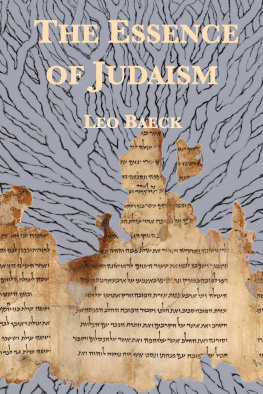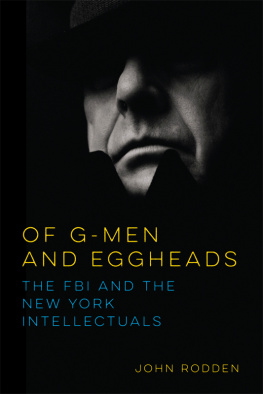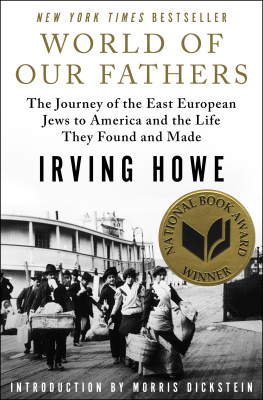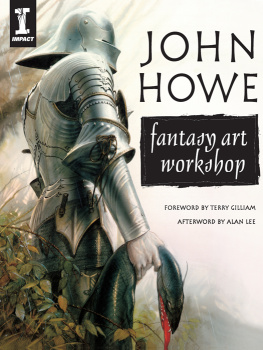THE WORLDS OF IRVING HOWE
Irving Howe speaking at a conference of the Democratic Socialists of America, c. 1980. Photo by Hugh Cleland.
THE WORLDS OF IRVING HOWE
THE CRITICAL LEGACY
edited by
John Rodden
First published 2005 by Paradigm Publishers
Published 2016 by Routledge
2 Park Square, Milton Park, Abingdon, Oxon OX14 4RN
711 Third Avenue, New York, NY 10017, USA
Routledge is an imprint of the Taylor & Francis Group, an informa business
Copyright 2005, Taylor & Francis.
All rights reserved. No part of this book may be reprinted or reproduced or utilised in any form or by any electronic, mechanical, or other means, now known or hereafter invented, including photocopying and recording, or in any information storage or retrieval system, without permission in writing from the publishers.
Notice:
Product or corporate names may be trademarks or registered trademarks, and are used only for identification and explanation without intent to infringe.
Library of Congress Cataloging-in-Publication Data
The worlds of Irving Howe : the critical legacy / edited by John Rodden.
p. cm.
Includes bibliographical references and index.
ISBN 1-59451-024-5 (hardcover : alk. paper) 1. Howe, Irving. 2. CriticismUnited
StatesHistory20th century. 3. American
literatureHistory and criticismTheory, etc. I. Rodden, John. II. Title.
PS29.E68W67 2005
974.71004920092dc22
2004026007
ISBN 13 : 978-1-59451-024-3 (hbk)
ISBN 13 : 978-1-59451-025-0 (pbk)
Designed and Typeset by Straight Creek Bookmakers.
My mother and father,
in gratitude for their journey
from the Old World to the New
Irving Horenstein at age 10, in the summer of 1930, around the time when his fathers grocery store went bankrupt. The family relocated shortly thereafter to a poorer neighborhood in the East Bronx, living with relatives.
Irving Horenstein playing the violin, c. 1930. He enjoyed the instrument and continued to play it in high school.
Horenstein, 16, in his graduation photo from the all-boys De Witt Clinton High School in northwest Bronx, 1936. Howe was active in the Young Peoples Socialist League during his high school years.
Contents
John Rodden
Irving Howe with his second wife, Thalia Phillies Howe, in front of their Princeton home in 1949. Thalia taught Latin and Greek at Miss Fines, a private day school for girls in Princeton. Howe worked as a full-time independent writer during their Princeton years.
Thalia and Irving Howe with the literary critic Richard Blackmur, a member of the English Department at Princeton University, c. 1950.
Irving Howe with Ilana Wiener Howe, his fourth wife, at Penoboscot Bay, Maine, 1987. Howe met Ilana, an Israeli, on his first trip to Israel in 1974. He collaborated with Ilana on literary projects, such as their co-edited collection of stories, Short Shorts (1983).
The Worlds of Irving Howe: The Critical Legacy comprises a selective reception history of the literary, cultural, and political criticism of Irving Howe. The collection broadens our understanding of Howes achievement by demonstrating the impact not only of his best-known books (such as World of Our Fathers and his autobiography, A Margin of Hope) but also of his numerous books on U.S. labor, the American Left, Yiddishkeit, contemporary politics, and European literature. Toward this end I have combined biography, reception history, and cultural commentary in order to illuminate the different worlds that Irving Howe inhabited as a socialist, Jew, and critic: the world of the leftist sect and then the American Trotskyist and socialist movements; the world of the Yiddish immigrant community in New York and later the wider Jewish community in America; and the overlapping worlds of the New York intellectuals, of the political weeklies and literary quarterlies, and of American university English departments. All of these circles and networks of intellectual exchange conditioned the political, personal, cultural, and professional dynamics that governed both the reception of Howes work and his evolution as a thinker and writer.
Unlike my previous book, Irving Howe and the Critics, which was chiefly devoted to original, often quite personal responses to Howes work from his contemporaries, the present study is a comprehensive work of reference and historical scholarship. In order to document the reception of Howes complex achievement, The Worlds of Irving Howe includes an assortment of materials: short book reviews, essay-reviews, articles from intellectual quarterlies, obituaries, memoirs, and reassessments. I have selected these items with an eye variously toward their critical quality, historical significance, biographical interest, generational importance, ideological slant, and general representative value. Ultimately, I have favored responses to Howe by influential intellectual contemporaries and successorswriters whose work possesses its own intrinsic interest. Each document included in this book is preceded by a biographical headnote that discusses the author of the selection and, in most instances, highlights the key claims of the item, places it in the context of its authors career, and/or clarifies its authors relationship to Howe.
I dedicate this book to my parents, John and Rose Rodden, Irish Catholics from County Donegal. Their decades of ceaseless encouragement and generous support enabled me to study American literature and the history of socialism, domains beyond the immigrant worlds of my father and mother.
Irving Howe lectured at the American Studies Seminar at the University of Salzburg in 1958. Afterwards, he and Thalia toured France and Italy with their children, Nina and Nicholas.
1920 | Irving Arthur Horenstein, who later adopted the name Irving Howe (IH) is born on June 11, at 139th Street in the Bronx, New York City, a Yiddish-speaking neighborhood, to David and Nettie (Goldman) Horenstein. |
















